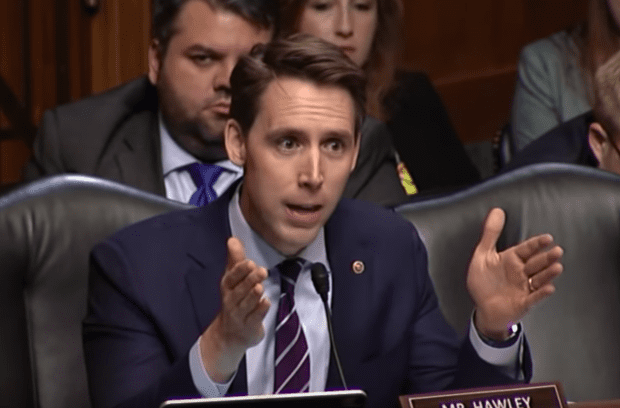“That’s Classified!” See How Afghanistan War Lies Are Made

The Afghan government classifies all metrics that would show its failure to reach goals, or stops collecting the information entirely, a government watchdog told a Senate subcommittee led by Sen. Rand Paul today.
“Do any specific trends lead you to believe that Afghan security forces will one day be able to hold off the Taliban… from being able to stave off attacks on the U.S. homeland?” asked Sen. Josh Hawley, the Republican junior Senator from Missouri.
“That’s the 64 billion dollar question,” said John Sopko, Special Inspector General for Afghanistan Reconstruction. “Most of the indicia for measuring success are now classified, or are not collected…. $64 billion spent and I cannot tell the American people [whether we’ve reached these goals or not] and that’s because we allow the Afghan government to classify the information.”
“And that’s because… When one metric doesn’t appear to show success, we shift to a different metric, isn’t that right?” asked Hawley.
“That’s correct,” replied Sopko.
One metric that is no longer considered relevant is how much territory is under the Afghan government’s control, or how many citizens, Sopko testified. Nor do we know how many Afghan soldiers and police we are paying for.
“You’re saying the metrics we’ve used to measure success or progress when it comes to Afhgan government, every time it shows negative progress, in your experience, those metrics are either classified or abandoned?” asked Hawley.
“That’s correct.”
“Well then how are we going to make any progress if we don’t have any data or metrics?” asked the senator, sounding exasperated.
The subcommittee, chaired by Sen. Rand Paul (R-Ky.), had assembled to discuss the Afghanistan Papers, an explosive report from The Washington Post last month that called attention to the lies and spin the government had used to distract from its lack of strategy within the country.
The trove of documents released by the paper in December came after an extensive investigation and a three-year long Freedom of Information Act legal battle.
The Office of the Special Inspector General for Afghanistan Reconstruction (SIGAR) had interviewed over 600 people with firsthand knowledge of the war, including generals, diplomats, aid workers, and Afghan officials.
The report included over two thousand pages of previously unpublished documents and notes from interviews showing that the U.S. government deliberately misled Americans about the progress of the war in Afghanistan and proffered misleading and dishonest claims that senior officials knew were untrue. The title “Afghanistan Papers” is an unflattering nod by The Washington Post to the Pentagon Papers, which exposed the lies by the government in the Vietnam War.
“Can you point to any metrics that show the Afghan government will be able to stand on its own in the near future?” asked Hawley.
Sopko said that the Afghan government has attracted many young recruits that have a positive outlook, but that “the real threat” to the Afghan government is that over 75 percent of its budget is paid for by American and allied taxpayers.
The illicit economy of narcotics is one of the few growth areas since the U.S. has been there, said Sopko.
“We’ve invested a trillion dollars, thousands of lives” but yet we allow the Afghan government to determine what metrics of success our government has access to, said Hawley as he concluded his questioning.